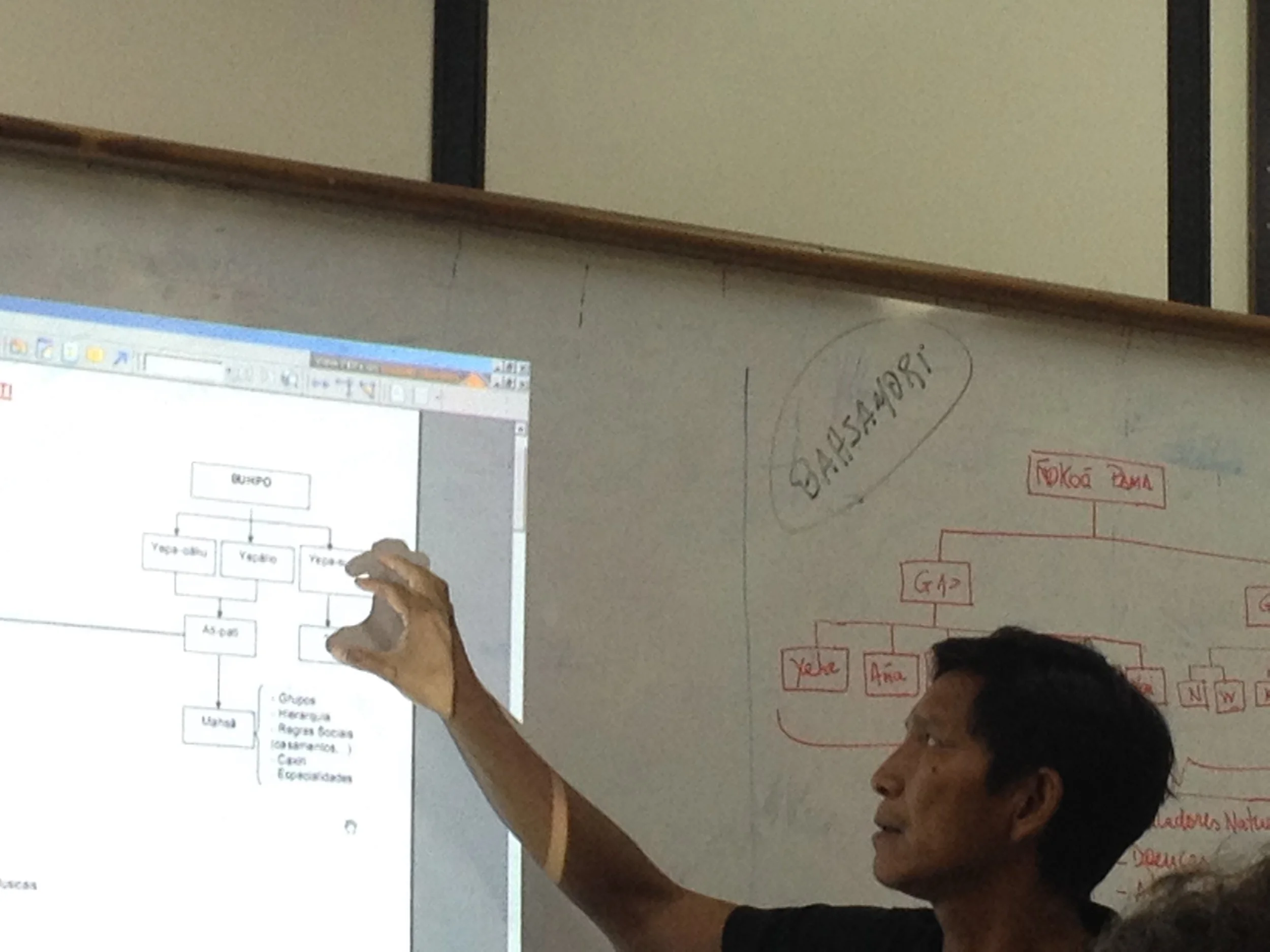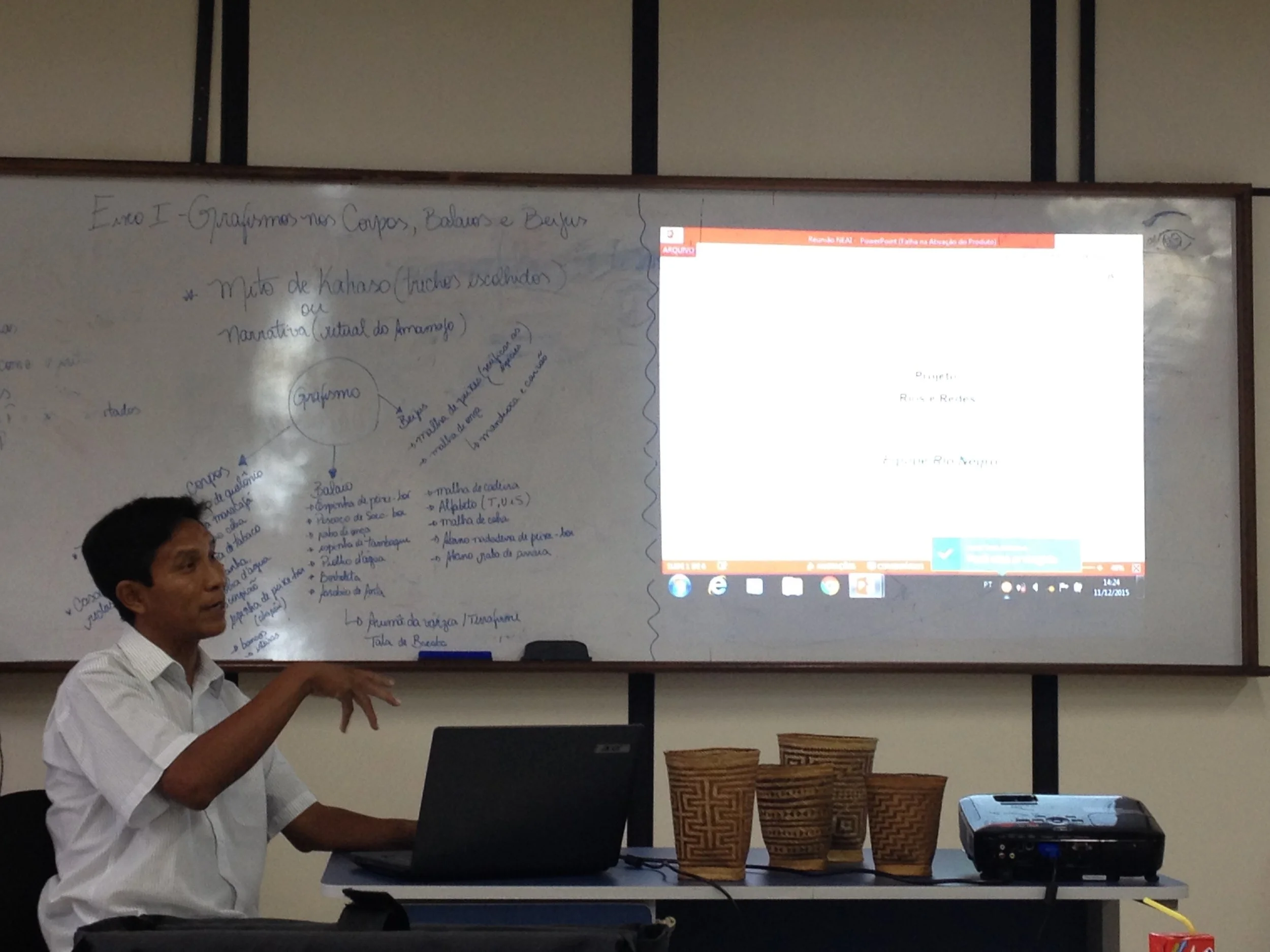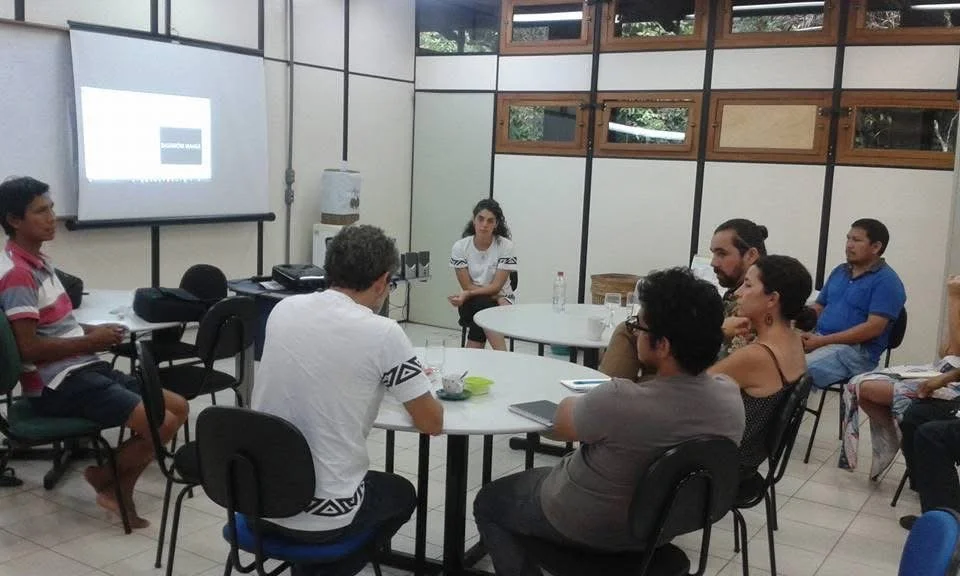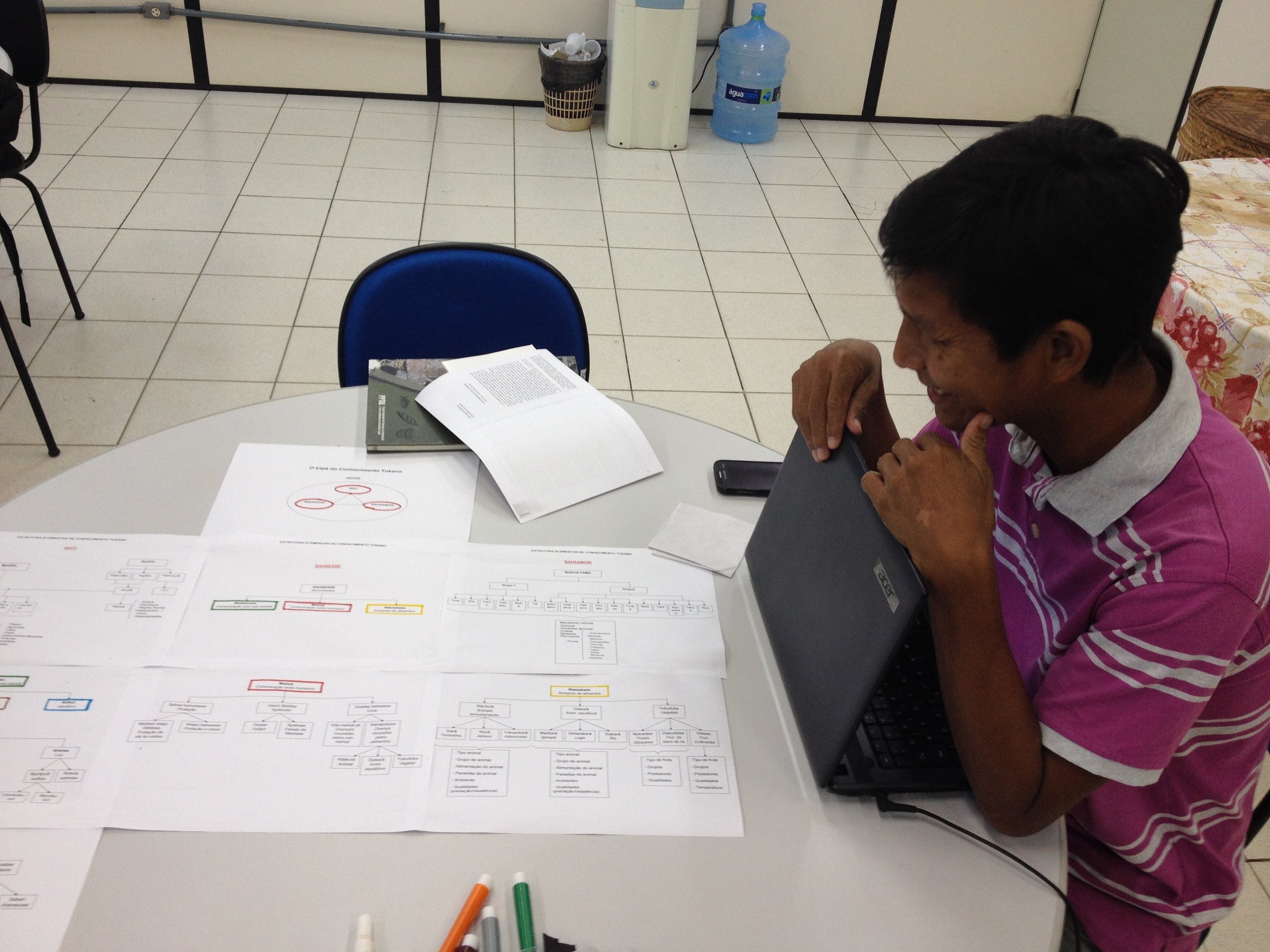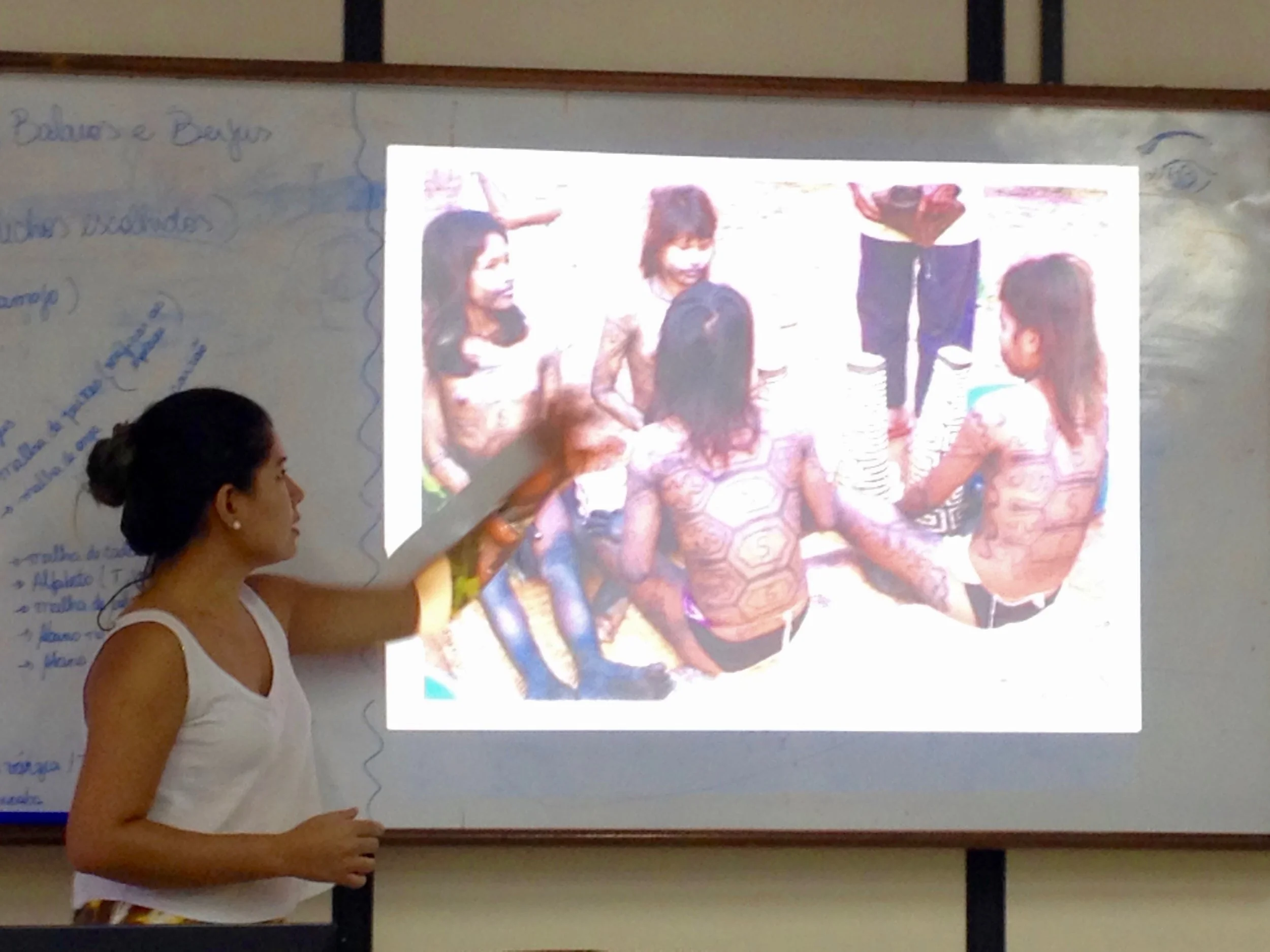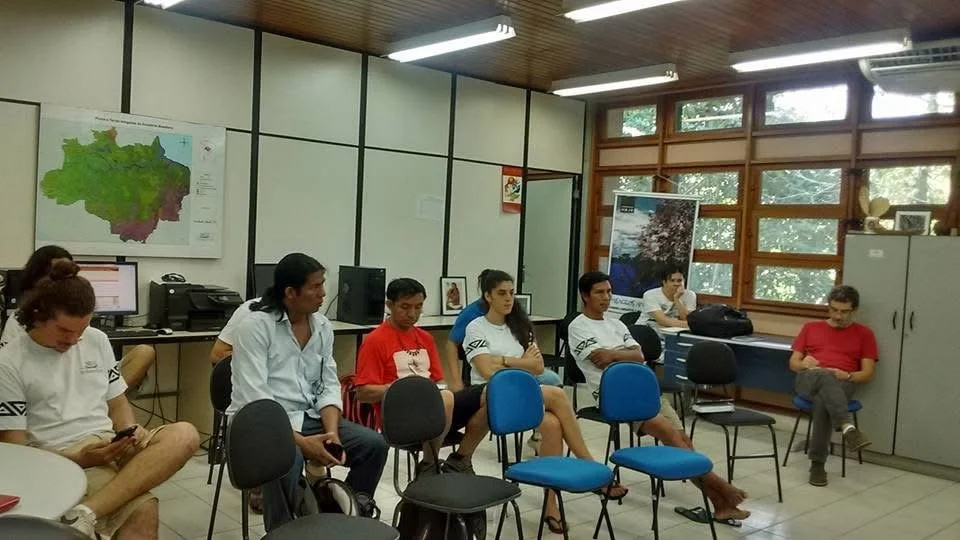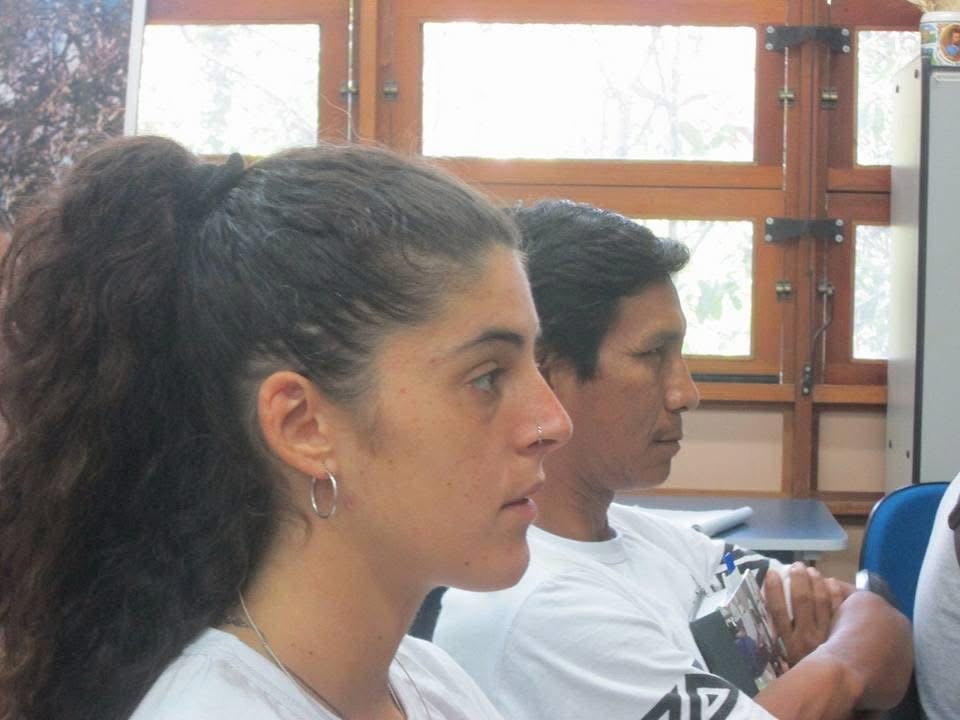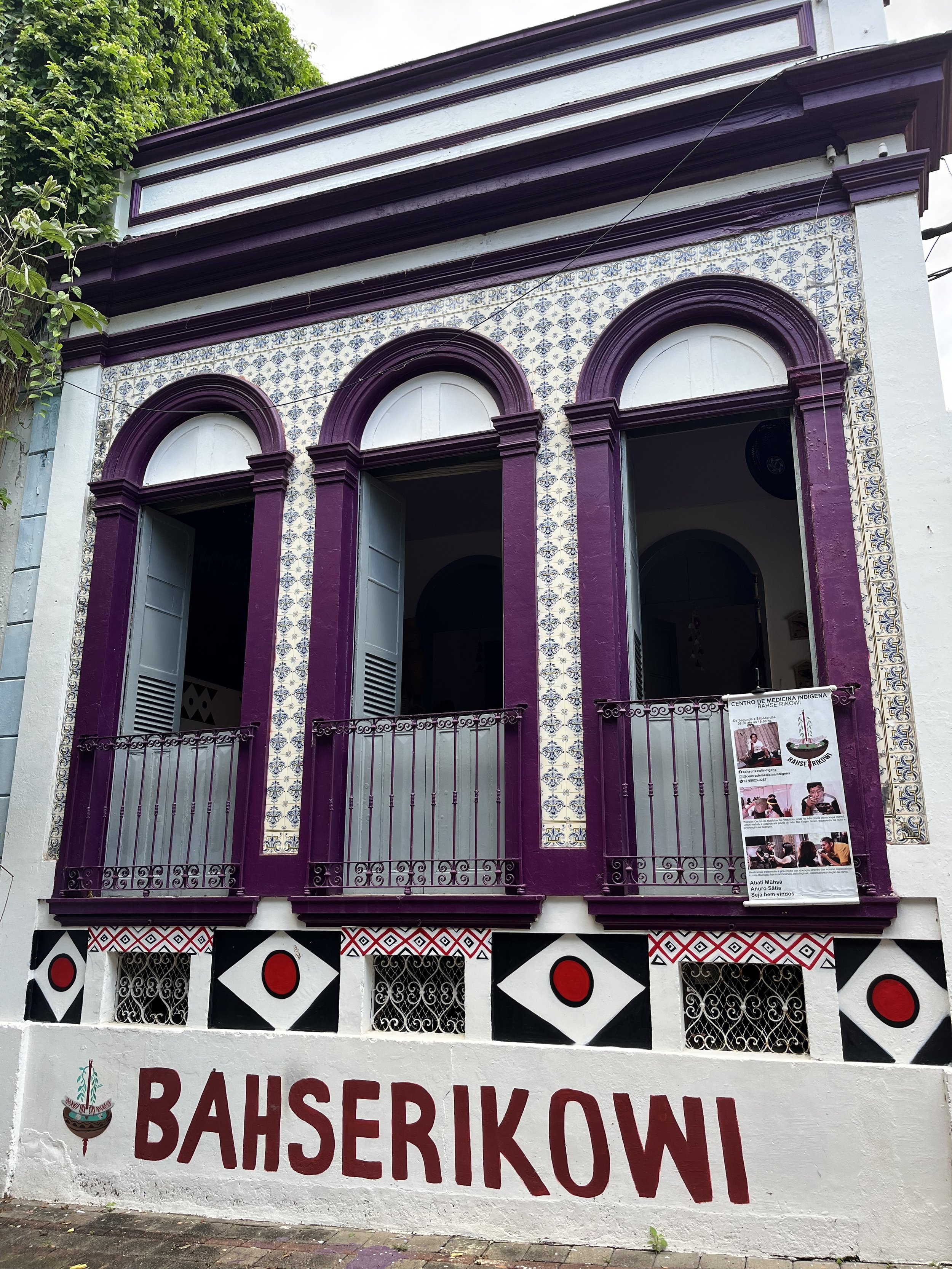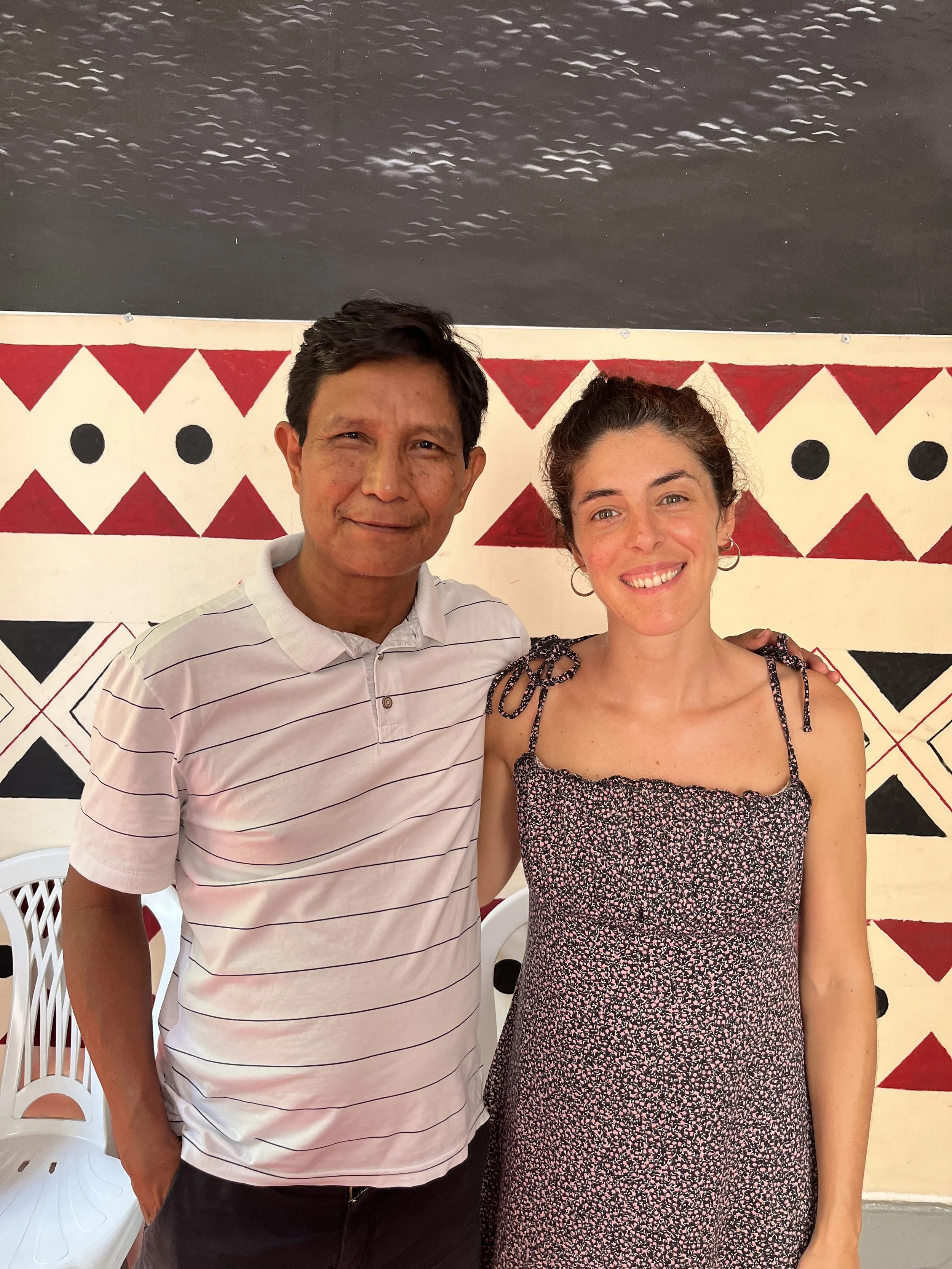NEAI
- Núcleo de Estudos da Amazônia Indígena -
Knowledge workshops:Transmission of knowledge inside the Indigenous Amazon Studies Centre.
In 2015–2016, as a scholarship recipient for overseas study from the University of Bologna, I conducted field research for my master’s degree at the NEAI* (Centre for Indigenous Amazonian Studies) in Manaus.
My research was carried out in close collaboration with João Paulo Lima Barreto, who was concurrently pursuing his PhD in Anthropology. This collaboration resulted in significant academic and audiovisual outcomes, including Costanza’s master’s thesis and two short visual documentations: one featuring an in-depth interview with João Paulo Lima Barreto about his doctoral research, and another documenting a traditional music ritual performed within the MUSA (Museum of the Amazon) by the Tukano people. The time spent researching at the NEAI marked the beginning of a long-standing and productive collaboration between the two researchers.
After this partnership and the project of the NEAI, João Paulo’s thesis was also published as the book: O mundo em mim: uma teoria indígena e os cuidados sobre o corpo no Alto Rio Negro (The World Within Me: An Indigenous Theory and Care for the Body in the Upper Rio Negro). João Paulo became the first indigenous professor in anthropology of the Federal University of Manaus and since then he is working on several projects involving also international collaborations.
*(NEAI develops research and extension projects and a series of academic activities aimed at producing knowledge that can contribute to a better understanding of the complex cultural reality of the Amazon. Official Website: www.neai.ufam.edu.br/ )
At the NEAI during the field research in 2015/2016
Currently:
In 2017, João Paulo founded the Bahserikowi, first Indigenous Medicine Centre in Brazil.
We have since reunited to develop new scientific and cultural material, this time with an expanded objective: to integrate artistic methodologies into the Centre’s activities through the creation of specialised and sustainable workshop programmes. Not only the use of film as research tool and educational vehicle but also drawing, figurative art and painting are the ideal methods for supporting the process of knowledge transmission.
Therefore in January 2025, we asked the visual artist Clayton Junior—a long standing collaborator of mine in educational and artistic initiatives in Berlin—for a meetings at the Centre in Manaus. Together, we defined the conceptual framework and operational foundations for the projects currently in development.
Kumu , João Paulo Lima Barreto, Costanza Parigi and Clayton Junior at their meeting in Basherikowi Indigenous Medicine Center of Manaus, Brazil, January 2025.
